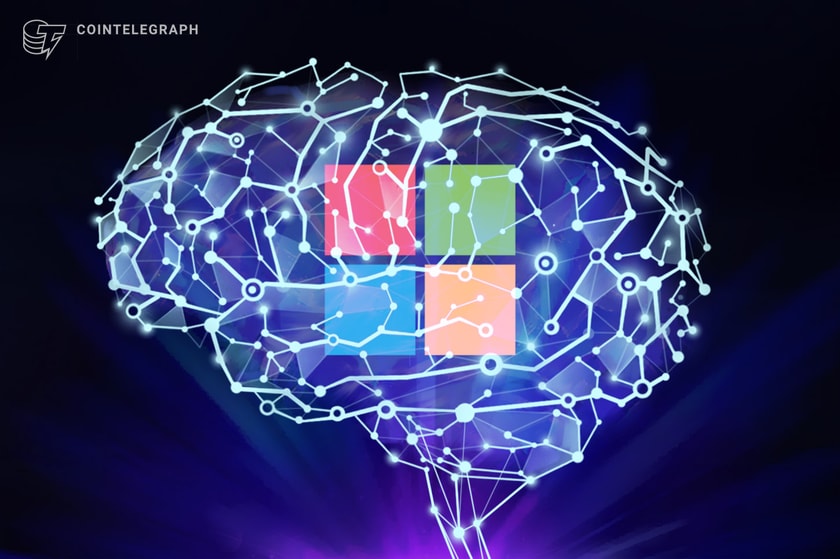OpenAI and Microsoft partner with Humane on wearable AI pin

AI startup Humane launched the wearable virtual assistant AI Pin that is embedded with technology from OpenAI and cloud computing services from Microsoft.
Artificial intelligence startup Humane released a physical device on Nov. 10 that serves as a wearable AI virtual assistant.
The AI Pin is a lapel pin-style device that the user wears and taps to speak with a virtual AI-powered assistant. It is equipped with technology from OpenAI, creator of the well-known chatbot ChatGPT, and has cloud computing capabilities via Microsoft.
According to Humane, users can also interact with the pin via an intuitive touchpad, holding up objects, performing gestures and through its laser ink display that is projected onto the palm.
It says the pin will be able to craft messages in the “tone of voice” of the user, sort emails and provide AI-driven music experiences, and it includes an AI-powered photographer. “Ai Pin can also act as your foreign language interpreter,” it reads, “and support your nutrition goals by identifying food using computer vision.”
In a statement, Humane co-founders Imran Chaudhri and Bethany Bongiorno said:
“Ai Pin is the embodiment of our vision to integrate AI into the fabric of daily life, enhancing our capabilities without overshadowing our humanity.”
Humane said it is also launching its own mobile virtual network operator connected by telecom company T-Mobile to provide wireless service for the device.
Related: Biden AI executive order ‘certainly challenging’ for open-source AI — Industry insiders
The pin is available to order in the United States starting Nov. 16 and begins at $699 for the entire system, along with a monthly subscription of $24 per month, which includes a cell phone number for the pin and cell services.
Humane was founded by former Apple employees who worked on the iPhone and has raised $241 million from investments by major players in the space, including Sam Altman, CEO of OpenAI, and Microsoft.
The AI Pin comes on the heels of many fast-moving developments in the AI space over the last week.
On Nov. 5, Elon Musk and his AI startup, xAI, launched a chatbot called Grok, which he said could outperform ChatGPT — currently hailed as one of the world’s most advanced chatbots.
The next day, OpenAI announced new ChatGPT features that allow subscribers to create their very own GPTs
Magazine: Exclusive: 2 years after John McAfee’s death, widow Janice is broke and needs answers



